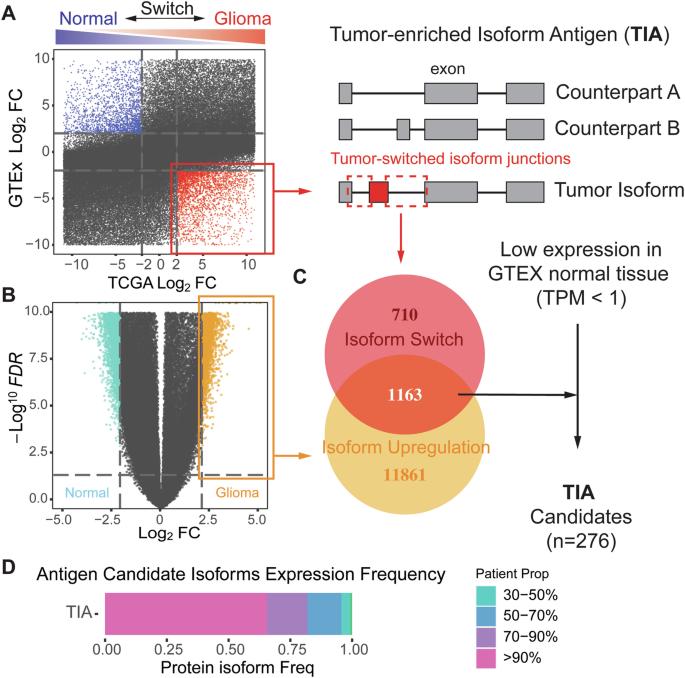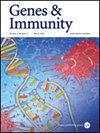Transcript-targeted antigen mapping reveals the potential of POSTN splicing junction epitopes in glioblastoma immunotherapy
IF 4.5
3区 医学
Q1 GENETICS & HEREDITY
引用次数: 0
Abstract
Tumor antigens are crucial for T-cell mediated immunotherapy, but identified antigens for gliomas remain limited. Aberrant splicing variants are commonly expressed in tumors, resulting in unique tumor isoforms with potential antigenic properties. Herein, we analyzed multi-omics data from 587 glioma patients and assembled a library of putative tumor-enriched isoform antigens (TIA) and corresponding peptides presented on each HLA-I allele. We constructed an individual-specific TIA peptide candidate repertoire for each patient based on their TIA expression and HLA-I haplotypes. TIAs were highly expressed, enriched with glioma malignancy, and demonstrated strong HLA-binding affinity. We focused on periostin isoform-203 (POSTN-203), which was associated with poor survival of patients and contained multiple predicted HLA-restricted peptide epitopes. A selected HLA-A11-restricted peptide from POSTN-203 (POSTN-203A11) induced antigen-specific T-cell responses against both peptide-pulsed and POSTN-203-expressing glioma cells in an HLA-specific manner. Our findings highlight TIAs as a promising source of immunogenic antigens and POSTN-203 as a potential promising target for glioma immunotherapy.

转录靶向抗原定位揭示了POSTN剪接连接表位在胶质母细胞瘤免疫治疗中的潜力。
肿瘤抗原对t细胞介导的免疫治疗至关重要,但确定的胶质瘤抗原仍然有限。异常剪接变异通常在肿瘤中表达,导致具有潜在抗原性的独特肿瘤异构体。在此,我们分析了来自587名胶质瘤患者的多组学数据,并组装了一个假定的肿瘤富集异构体抗原(TIA)和每个hla - 1等位基因上相应的肽库。我们根据每位患者的TIA表达和hla - 1单倍型构建了个体特异性TIA肽候选库。TIAs高表达,与恶性胶质瘤富集,并表现出很强的hla结合亲和力。我们重点研究了与患者生存率低相关的骨膜蛋白异构体-203 (POSTN-203),该异构体含有多个可预测的hla限制性肽表位。从POSTN-203中选择的hla - a11限制性肽(POSTN-203A11)诱导抗原特异性t细胞以hla特异性方式对肽脉冲和表达POSTN-203的胶质瘤细胞产生反应。我们的研究结果强调TIAs是一种有希望的免疫原性抗原来源,而POSTN-203是神经胶质瘤免疫治疗的潜在有希望的靶点。
本文章由计算机程序翻译,如有差异,请以英文原文为准。
求助全文
约1分钟内获得全文
求助全文
来源期刊

Genes and immunity
医学-免疫学
CiteScore
8.90
自引率
4.00%
发文量
28
审稿时长
6-12 weeks
期刊介绍:
Genes & Immunity emphasizes studies investigating how genetic, genomic and functional variations affect immune cells and the immune system, and associated processes in the regulation of health and disease. It further highlights articles on the transcriptional and posttranslational control of gene products involved in signaling pathways regulating immune cells, and protective and destructive immune responses.
 求助内容:
求助内容: 应助结果提醒方式:
应助结果提醒方式:


